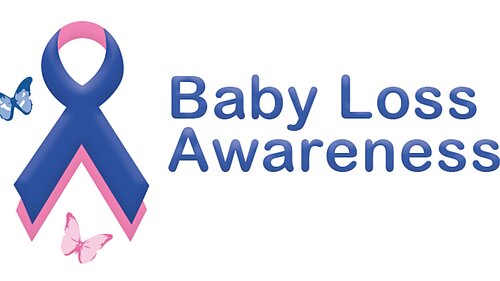Bobby shares personal story during Baby Loss Awareness Week

Bobby Dean MP shared his personal story of early miscarriage as part of Baby Loss Awareness Week.
Earlier this year, he and his wife discovered that their baby had no heartbeat at the 12-week scan. In his speech he went on to explain the trauma of what followed, the lack of formal support and how little is spoken about this unfortunately common life event.
The topic is something that many feel isolated in and, since sharing his story, the video of his speech has been viewed millions of times and sparked thousands of others to comment with their own story.
Bobby now plans to share those stories with the Health Secretary in order to push for the changes that people going through baby loss need.
Baby Loss Awareness Week, which runs from 9th to 15th October, was set up in 2002 to support all the families who have experienced the loss of a baby, whether at the pregnancy stage or soon after birth.
Over 100 groups and charities run events across the UK to help raise awareness, and to provide support to friends or family members who have been affected.
__
Video transcription:
Earlier this year, my wife and I had an early miscarriage. It was our first pregnancy and we were extremely excited when we got the positive test result. We were very quick to tell all our friends and family. We had no negative signs ahead of our 12-week scan, but during that scan it became quickly apparent that something was not right. We were asked whether it was possible that it could have been nine weeks. Then a second staff member came in and shortly after we were told that there was no heartbeat. We were moved to another room where we asked all the questions that I am sure many ask in this situation. Was there anything we could do? Is there anything we could do differently next time? We were reassured that, actually, it was extremely common, there was nothing we could have done, and that it happens to around one in four or five people.
On our journey home, we felt a bit silly for not knowing that fact and for not being prepared for how common that type of miscarriage was. We wondered why we had not been told in our early antenatal appointments that it was a possibility. We also wondered why we had not heard that so much from friends and family, or seen it in conversations on the TV. After that, we pledged that we would talk about it more.
After that moment, we were faced with some morbid choices: a natural miscarriage, the opportunity to take some pills, or some sort of surgical procedure. We were given a leaflet to think about it and off we went. We did not actually have the opportunity to make that choice, because shortly after we found out the miscarriage started to happen naturally. I can only say that I was not prepared for the level of brutality that that would entail. We were told that it might be like period pains, but it was much more severe than that for my wife and the volume of blood was unsettling. I could not believe it was normal while it was happening.
We started googling and looking online for advice, and we were lucky to find blogs by Tommy’s and other organisations that have been mentioned today, which provided us with some reassurance. However, we still ended up going to A&E because we were concerned about the blood loss. They gave us some reassurance, and we managed to go home with some medication and to get through that event. The follow-up from that traumatic incident in our lives was a simple phone call; we had to report a negative pregnancy test a few weeks later, and that was the end of the support.
Before I run out of time, I must add that we were keen to get on, and we have since got pregnant again. We have jumped that 12-week hurdle, and we are now aware that the chances of miscarriage have greatly diminished, so we are in a better place than we were. However, we are still wondering about what more can be done to provide reassurance to people in that really troubling moment.
I ask the Secretary of State whether we can record every miscarriage so that we can get firmer statistics about how often this happens. I ask him also to look at whether we can provide access for people 24 hours a day so that they do not have unsettling moments wondering if they need to attend A&E, and whether the mental health support that is in place after a third miscarriage could be in place from that very first moment, because it is a deeply traumatic event for anybody to go through. I think we need to talk about it as a society much more, so that the next couple is prepared.
